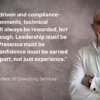
I’m a millennial, however, I don’t speak for all millennials. As we all know, each individual, regardless of the year they were born, is still an individual. There is not one pattern of traits that matches every single person born within a specific range of years. Reminding ourselves of this helps to remove the boxes we put people in and the labels we apply to each other.
- Millennials are lazy and disloyal – FICTION
According to research, millennials actually work an average of 45 hours per week in the US with 1 in 5 taking a second job to pay the bills. Millennials tend to work hard to complete tasks and don’t really think of ‘work/life’ balance as much as ‘work-as-a-part-of-life/balance’. Often this results in work-related tasks being done outside of the standard working hours. For this, millennials often appreciate a flexible working environment that allows them to work when and where is most convenient. Being held accountable for work accomplished (or not) as opposed to how many hours were logged sitting in an office is a much more logical and appreciated method of management for millennials.
The advent of television and commercials have had an interesting impact of attention span and expectations. One way this is obvious in millennials is the focus often on ‘what’s next’. Because of this, there is the stigma that millennials are disloyal. However, let’s explore the possibility of redefining (or broadening our definition) of what loyalty means. A millennial can be your most dedicated and passionate worker, but then disappear one day to take another position. This isn’t a loyalty issue, as far as they’re concerned. Loyalty is a two-way street. I am loyal to my employer and what they need from me as long as my employer is loyal to me and what I need from them. I want to grow and learn and be prepared for the next career step I’m going to take. As soon as my employer stops investing in me, I begin to be interested in those who will. Alternatively, once I reach what I perceive to be the ceiling in my current role (and/or company), I’ll begin to look for opportunities for the next step. That may be inside or outside my current organization.
- Millennials are rude and rebellious – FACT and FICTION
Rudeness is not a generational issue. Socrates (400BC) made this statement. “Our youth have contempt for authority. They show disrespect for their elders.” Having a generation that defies authority and fights for their own voice isn’t new to millennials. Anyone remember the 60’s and 70’s? The process is certainly different than prior generations, but the purpose remains similar. A desire to ‘get out from under’ an old way of doing things and being open to finding new and creative ways of accomplishing work. Rudeness is more often a side effect of poor training or a lack of EQ and less often a result of what year you were born.
Being rebellious is considered an important behavior for making things better. Questioning the ‘old way’ of doing things, challenging the status quo, and pushing the standards is deemed vital to innovation. As much if not more than other generations, millennials want to understand why we do things a specific way, and why those things can’t be done in a newer, more exciting/efficient/practical way. I can still remember when my dad made the switch from a huge atlas to a GPS! It was a painful experience for him as he learned a new way to get to where he needed to go, but it ended up being the best change! Breaking the rules, breaking from tradition, is often seen as rebellious but is often the only way to move forward, innovate and create.
- Millennials are hyper-connected through technology – FACT
Being born during the technology boom and raised to accept it as a part of life, is part of what makes millennials so connected. But practically speaking, technology makes getting information and learning so much easier! I still have to stop myself from being rude when someone asks me a question that can be more clearly and quickly answered by just asking Google. When a parent or Gen X sibling of mine emails a question, it’s a race amongst the millennial/Gen Z siblings to see who can copy/paste the Google response the fastest. We rely on technology for everything – from networking and socializing, to purchasing and managing our careers. I never buy anything anymore that I don’t look up user reviews and prices from online sources. I completely ignore products I can’t have at my doorstep in 2 or 3 days max. I refuse a restaurant no matter how good it sounds, if recent reviews are all terrible. If I want to learn how to be more effective as a communicator, I watch a TED talk or subscribe to a podcast or Google it. I don’t rely on standard education models and paperback books published years ago to tell me how to operate, and technology brings the power of information at the speed of my connection… which means I’m also very interested in exactly how fast that connection speed will be… I have no time to wait for pages to load.
I’m interested in hearing from you, millennial or not. What have your interactions been? What stereotypes do you struggle with from any generation? How can you challenge yourself to change the lens you look through so that each of us can collaborate and leverage the individual strengths we each bring to the table? Best of luck and keep learning! If I can help you with your multi-generational workforce, please let me know.
About the Author: Josh Combest
About MCG Partners
MCG Partners a woman-owned, Greater Boston-based consultancy specializing in executive coaching, leadership development, talent management, and organizational development solutions. We help businesses optimize success through the entire management life-cycle. MCG Partners is also a Predictive Index® (PI®) certified partner.
To learn more about MCG Partners’ services or The Predictive Index®, contact John Griffith at john.griffith@mcgpartners.com or visit mcgpartners.com.
[/fusion_text][/fusion_builder_column][fusion_builder_column type=”1_4″ layout=”1_1″ spacing=”” center_content=”no” link=”” target=”_self” min_height=”” hide_on_mobile=”small-visibility,medium-visibility,large-visibility” class=”” id=”” background_color=”” background_image=”” background_position=”left top” background_repeat=”no-repeat” hover_type=”none” border_size=”0″ border_color=”” border_style=”solid” border_position=”all” padding_top=”” padding_right=”” padding_bottom=”” padding_left=”” dimension_margin=”” animation_type=”” animation_direction=”left” animation_speed=”0.3″ animation_offset=”” last=”no”][fusion_widget_area name=”avada-custom-sidebar-blogsinglepagesidebar” title_size=”” title_color=”” background_color=”” padding_top=”” padding_right=”” padding_bottom=”” padding_left=”” hide_on_mobile=”small-visibility,medium-visibility,large-visibility” class=”” id=”” /][/fusion_builder_column][/fusion_builder_row][/fusion_builder_container]






